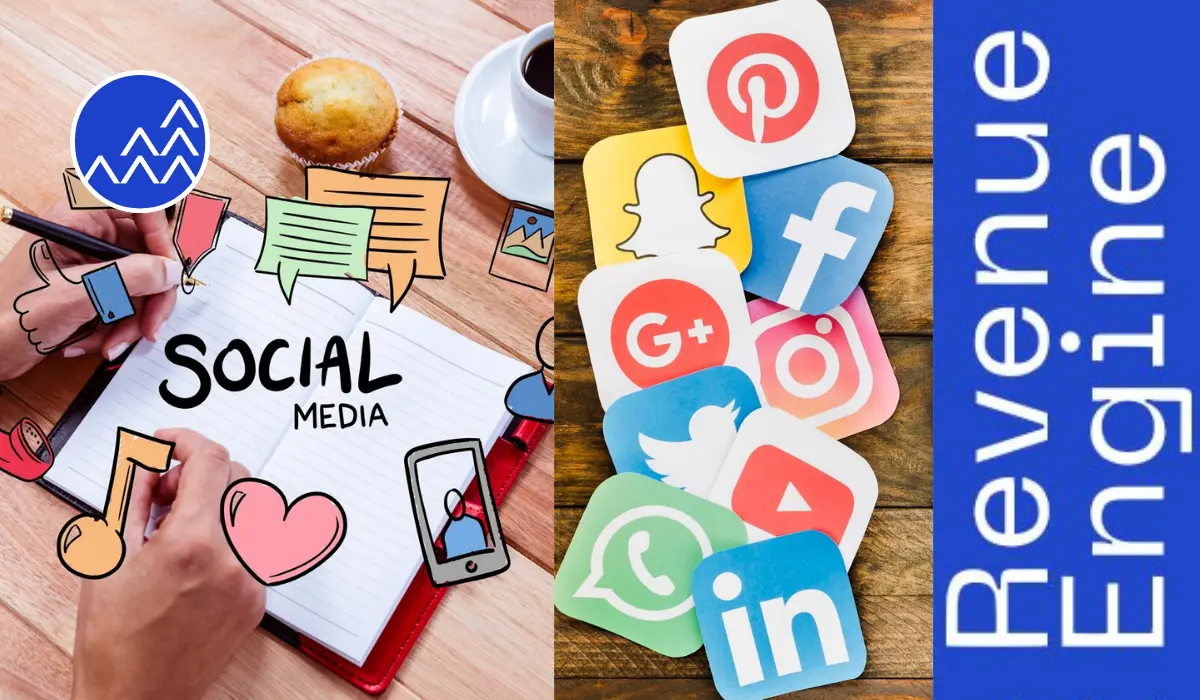Expert Social Media management has become essential to any marketing strategy, helping brands connect with audiences, build trust, and drive sales. Whether you’re a small business or a large enterprise, having a solid social media presence is crucial in today’s digital age. In the Revenue Engine article, we’ll explore the importance of social media management, key strategies to implement, and how the right approach can amplify your business success.
Why Social Media Management Matters
Social media platforms like Facebook, Instagram, LinkedIn, Twitter, and TikTok have billions of users. These platforms are powerful tools for businesses to reach new customers, maintain relationships with existing ones, and build a community around your brand. Social media management ensures you effectively use these platforms to achieve your marketing goals.
Key benefits of social media management include:
- Increased Brand Awareness: Consistent posting and engagement on social platforms help spread the word about your brand to new audiences.
- Improved Customer Engagement: Social platforms offer a space for real-time conversations with customers, boosting trust and loyalty.
- Higher Conversion Rates: With tailored content and paid campaigns, social media helps convert followers into customers.
- Cost-Effective Marketing: Compared to traditional advertising, social media marketing offers a lower-cost option with a high ROI.
- Valuable Customer Insights: You can track the performance of your content and get feedback from customers, allowing you to refine your strategies.
Crafting an Effective Social Media Strategy
A well-rounded social media management strategy requires thoughtful planning and execution. Here are the essential elements for success:
Set Clear Goals
Start by defining what you aim to achieve with your social media efforts. Your goals could include:
- Increasing brand awareness
- Driving website traffic
- Generating leads or sales
- Building a community
- Improving customer service
Your goals should be SMART: Specific, Measurable, Achievable, Relevant, and Time-bound.
Know Your Audience
Understanding your target audience is key to creating content that resonates. Research demographics, interests, and behaviors to determine which platforms they are most active on and what kind of content appeals to them.
Content Planning and Creation
Content is the foundation of social media success. Develop a content calendar to ensure a consistent posting schedule and variety in your content types. Types of social media content include:
- Educational posts: Blogs, infographics, and how-to guides.
- Engaging content: Polls, Q&A sessions, and contests.
- Promotional content: Discounts, product launches, and customer testimonials.
Ensure your content is visually appealing, and always keep your messaging aligned with your brand voice.
Engage with Your Audience
Social media is a two-way street. It’s not enough to post content—you need to actively engage with your audience. Respond to comments, participate in conversations, and show appreciation for user-generated content. Engaging with your followers builds trust and shows that your brand cares about its community.
Use Analytics to Track Performance
To measure the success of your social media efforts, you need to track performance metrics such as:
- Engagement rate (likes, comments, shares)
- Follower growth
- Click-through rate (CTR)
- Conversion rate
- Reach and impressions
Most platforms provide built-in analytics tools that allow you to gauge how well your posts are performing and adjust your strategy accordingly.
Paid Social Media Campaigns: Amplifying Your Reach
While organic reach is vital, combining it with paid social media campaigns can yield even greater results. Platforms like Facebook and Instagram offer robust advertising tools to target specific audiences, increase brand exposure, and drive conversions.
Key Steps to Launch a Successful Paid Campaign:
- Audience Targeting: Define your audience based on age, location, interests, and online behavior.
- Ad Format: Choose between various formats such as photo ads, video ads, carousel ads, and story ads, depending on your objective.
- Budget Allocation: Determine a budget that aligns with your goals and track spending to ensure a high return on investment.
- A/B Testing: Experiment with different ads, visuals, and messaging to identify what resonates most with your audience.
Tools to Help You Manage Social Media Effectively
Managing multiple social media accounts can be time-consuming. To streamline the process, consider using social media management tools like:
- Hootsuite: Schedule posts, manage multiple accounts, and track performance metrics.
- Buffer: Automate posting schedules and analyze engagement.
- Sprout Social: Offers in-depth analytics and customer relationship management features.
These tools can save time and help you stay organized, allowing you to focus on engaging with your audience and creating content.
The Role of AI in Social Media Management
AI-driven tools are revolutionizing social media management, offering automation features like content scheduling, customer service chatbots, and predictive analytics to forecast engagement trends. AI-powered platforms can also help identify the best times to post, suggest trending hashtags, and even analyze the sentiment of comments to refine future posts.
Conclusion
Effective social media management is about much more than just posting content—it’s about creating meaningful connections with your audience, leveraging data to inform strategy, and using the right tools to maximize efficiency. By following the strategies outlined in this guide, you can elevate your brand’s social presence and drive growth.
FAQs!
What is social media management?
Social media management involves creating, scheduling, analyzing, and engaging with content posted on platforms like Facebook, Instagram, Twitter, and LinkedIn to grow a brand’s presence.
How often should I post on social media?
It depends on the platform and your audience. Generally, consistency is key. Posting 3-5 times a week on platforms like Instagram and Facebook is a good benchmark.
What are the benefits of using social media management tools?
Tools like Hootsuite and Sprout Social help streamline tasks like scheduling, tracking performance, and managing multiple accounts, saving time and improving efficiency.
How do paid ads work on social media?
Paid social ads target specific audiences with customized content. You can control the budget, and target demographics, and analyze performance to optimize campaigns for conversions.
What role does AI play in social media management?
AI tools help automate tasks like content scheduling, audience analysis, and engagement prediction, allowing brands to create more data-driven social media strategies.








